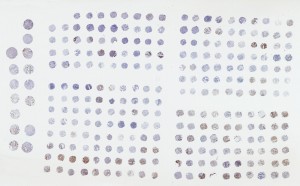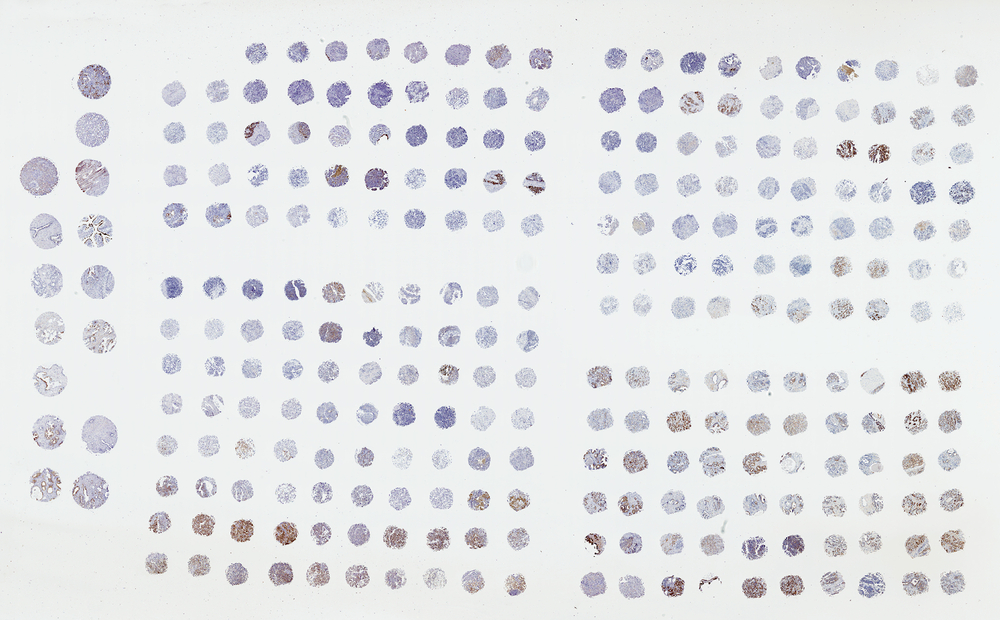 Clinicians may be able to use another prognostic marker for colon cancer in order to make decisions for the best treatment option for their patients. A new study from Queen’s University Belfast School of Medicine identified the protein EpHA2 as a marker for poor outcomes for early-stage colorectal cancer patients.
Clinicians may be able to use another prognostic marker for colon cancer in order to make decisions for the best treatment option for their patients. A new study from Queen’s University Belfast School of Medicine identified the protein EpHA2 as a marker for poor outcomes for early-stage colorectal cancer patients.
“This marker has been shown to be highly expressed in other cancers–breast, ovarian, prostate, glioblastoma, and others–but this is the first comprehensive work that has been done in colorectal cancer in the context of a specific poor prognostic genotype (KRAS and BRAF mutation),” said Sonali Dasgupta, MD, who led the study, in a news article from Clinical Oncology.
Dr. Dasgupta presented the findings at the American Society of Clinical Oncology annual meeting. She conducted experiments focused on the extent to which EpHA2, an erythropoietin-producing hepatocellular receptor tyrosine kinase, is over-expressed by colorectal cancer cell lines and human tissues.
Results showed high levels of EpHA2 expression in cells that where highly migratory and invasive. EpHA2 levels were correlated to vascular invasion in the human tissues. When considering the patients from whom the samples were obtained, the research team noticed a worse overall survival in colon cancer patients with high expression of EpHA2, especially those patients with stage II colorectal cancer.
“Our study is the first to show that EpHA2 is an independent predictor of poor clinical outcome and a potential target in early-stage CRC,” said Dr. Dasgupta. “If you have a patient who has this marker highly expressed, they are likely to do much worse in terms of survival compared to persons who have low expression.”
When faced with this patient prognosis, clinicians may alter their view on the best treatment option. “Patients are potential targets for either intensive surveillance or more treatment,” explained Dr. Dasgupta. These treatments could range from intense or early chemotherapy, EpHA2-targeted treatment, or a combination of the two.
If Dr. Dasgupta and the rest of her research team continue with studies of EpHA2, the marker may be validated for colon cancer prognoses. “The data look interesting, but it is a small group of patients and it will be hard to know where this will end up going,” Nilo Azad, MD, a medical oncologist at the Johns Hopkins Kimmel Cancer Center explained. “If you get a result that a patient is at a high risk for recurrence, you don’t know what to do with that. Does that mean if you give that patient chemotherapy that they will do better? Or, do they just have bad biology, so you are not going to be able to change [the prognosis]?”
Additional work that must be conducted involves randomized clinical trials that test the efficacy of treatment options against each other. “Right now, we have soluble ligands to target EpHA2, but we are also looking at monoclonal antibodies that could target EpHA2,” said Dr. Dasgupta. Soluble EFNA1-Fc ligand or EpHA2 RNA interference, two methods of inhibition studied by Dr. Dasgupta’s group, are options for controlling colon cancer. These may be used for patients diagnosed with colon cancer by means such as a new yogurt-based test or the newly-approved Cologuard.


